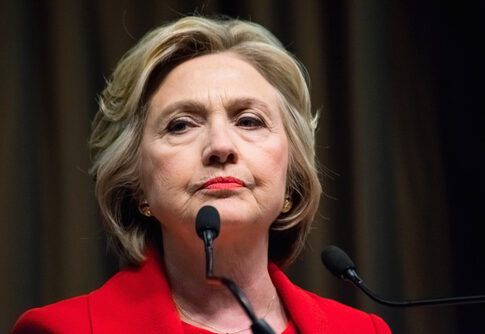Defense Secretary Pete Hegseth has issued a scathing response to Hillary Clinton’s recent accusations regarding U.S. policy towards Russia. This exchange underscores the fundamental ideological divide in American foreign policy approaches. What specific cyber operations against Russia have allegedly been halted under Hegseth’s direction?
The Cyber Showdown Between Clinton and Hegseth
A heated exchange between former Secretary of State Hillary Clinton and current Defense Secretary Pete Hegseth has exposed deep divisions in American foreign policy approaches toward Russia. The confrontation began when Clinton shared an article claiming Hegseth had ordered U.S. Cyber Command to “stand down” on operations against Russia, suggesting a dramatic shift in America’s cybersecurity posture.
Clinton mockingly commented on social media, “Wouldn’t want to hurt Putin’s feelings,” implying that Hegseth was taking a soft approach toward the Russian president. The article in question cited anonymous sources claiming a significant policy reversal under the Trump administration’s Department of Defense leadership.
BREAKING: Pete Hegseth just absolutely obliterated Hillary Clinton. pic.twitter.com/1qvVjyRjeQ
— Jack (@jackunheard) March 2, 2025
Hegseth’s America-First Defense
Hegseth wasted no time forcefully responding to Clinton’s accusations, defending his approach as pragmatic and focused on American interests. He pointedly reminded the public of Clinton’s troubled history with Russia, particularly her 2009 “reset” attempt that began with an embarrassing translation error.
The Defense Secretary’s response highlighted the hypocrisy in Clinton’s criticism, noting that she had previously claimed “the reset worked” before later describing herself as “most skeptical” about the policy. This stark reversal in Clinton’s position undermines her authority to criticize current Russian policy approaches, according to Hegseth’s supporters.
— Pete Hegseth (@PeteHegseth) March 2, 2025
The Broader Foreign Policy Debate
This high-profile disagreement reflects fundamental differences in how American political leaders approach relations with Russia and cybersecurity threats. While the previous administration emphasized certain types of cyber operations, Hegseth appears to be prioritizing a different strategic focus that he believes better serves American security needs.
The confrontation also raises important questions about how the United States should balance aggressive cyber-posturing with diplomatic engagement. Anonymous sources cited in the original article suggest concern within certain government circles about potential vulnerability to Russian cyber activities if offensive operations are curtailed.
Critics of Hegseth argue that reducing cyber operations against Russia could embolden Putin’s government to increase its digital aggression. Defenders counter that a more nuanced approach might create space for productive dialogue on critical security issues while maintaining robust defensive capabilities.
The clash between these two high-profile figures reminds Americans that foreign policy disagreements often transcend administrations and reflect deeper ideological divisions about America’s role in the world. As cybersecurity concerns continue to grow in importance for national security, these debates will likely intensify rather than diminish in the coming years.


